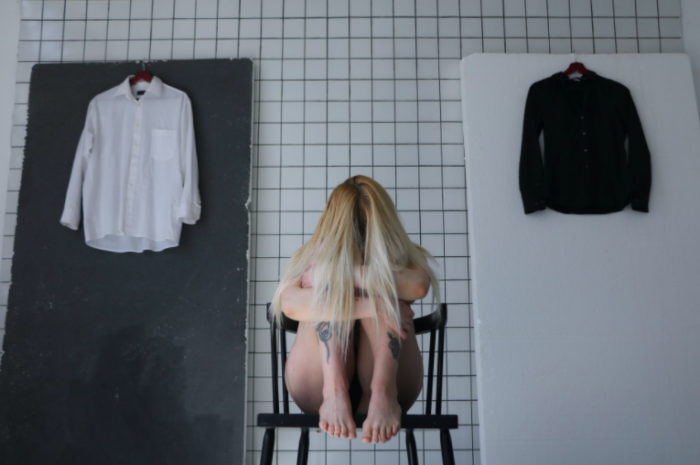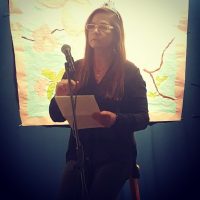I picked up Anne Lamott’s book, Hallelujah Anyway today and turned to the chapter I had bookmarked.
This chapter started with a quote from Rilke:
“I want to unfold. I don’t want to stay folded anywhere, because where I am folded, there I am a lie.”
As far back as I can remember, whenever I was given a piece of paper, whenever I might have a piece of paper in my hands, no matter if it was as small as a candy wrapper or the size of legal paper, I would fold it over and over, in half, then in fourths, and so on, until it was folded into the tiniest piece possible. Then, I might tuck it in my pocket or the pocket of my purse or into a fold in my wallet.
If it was a list I needed to reference, I’d carefully start the unfolding. Each opening of a flap revealed lines and creases on the paper and after several refoldings along those same lines and creases, and reopening of the folds, the paper might start to tear in places. I don’t know exactly why I fold things, but I know how I feel as I fold over and over into the smallest possible fold and gently tuck away.
Safe.
As far back as I can remember, whenever I felt fear or anxiety, not-enoughness or too-muchness or self-loathing, I would start to fold in on myself. I would tense my body into the smallest space I could possibly inhabit. Wrap my arms around myself. Pull my knees up as close to my chest as I could. Tuck my chin and touch my head to my knees.
Once folded, I would slip myself into maybe a closet or under my bed, into the smallest corner of my mattress, or into a shot of amber liquid. Anywhere to become invisible, to feel protected and hugged, me, fully wrapped around myself.
Safe.
As far back as I can remember, as I began to unfold, I was left with the lines and creases of the folds. There was no amount of smoothing over with my hands that would smooth out the lines and creases. Over the years, as I’ve folded and unfolded, these lines and creases have weakened and small tears have formed along them.
Leonard Cohen’s, “Anthem,” tells us that there are cracks in everything—it’s where the light gets in. There’s a Japanese art form and philosophy called kintsugi (gold joinery); a repairing of broken pottery with gold leaf. The pottery is not restored to its original unbrokenness, but the flaws and the imperfections are revealed as part of the deep, rich history of the piece.
I’m not sure if I believe that these lines, creases, and tears in the fabric of my folded being are where the light gets in or where the lies get out, but I do know that they are an important part of my being, my history, my herstory, my story.
Even in these seemingly weakest parts of me, these unraveled places in the woven tapestry of my soul, what I do feel is an exchange of energy as if these places are a portal between who I am and who I will become. These open spaces are a window to the Universe, an invitation into a holy conversation, a holy communion, an exchange of light and lies, of truth and fiction.
A place where I can grow into the fullest, most authentic expression of myself, connected to the whole, the holy.
Safe.


 Share on bsky
Share on bsky





Comments are closed.
Read 3 comments and reply